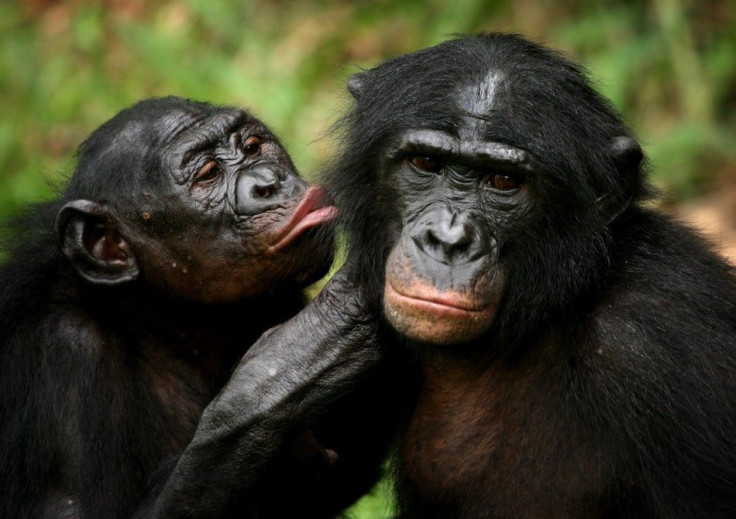Young Bonobos Under Parental Care Manage Emotions Like Humans, Comfort Others In Distress: Study

Young bonobos and children share remarkable similarities in emotional development suggesting that apes can control their emotions like humans do, according to researchers studying young bonobos in an African sanctuary.
The study, published in the Proceedings of the National Academy of Sciences on Monday, suggests the socio-emotional framework that plays a crucial role in the development of children also works equally well for apes. Researchers believe that they can use this framework to predict ape behavior.
“This makes the species an ideal candidate for psychological comparisons,” Frans de Waal, of the Yerkes National Primate Research Center at Emory University in Atlanta, said in a statement. “Any fundamental similarity between humans and bonobos probably traces back to their last common ancestor, which lived around six million years ago.”
Waal, along with Zanna Clay of Emory University, conducted the study at a bonobo sanctuary near Kinshasa, the capital of the Democratic Republic of the Congo. The researchers examined videos of the apes’ daily social life at the sanctuary to measure how bonobos control their own emotions as well as how they react to the emotions of others.
The analysis revealed that the young bonobos that recovered quickly and easily from their emotional disturbances showed more empathy for their fellow apes in distress with comforting actions such as kissing, embracing and touching.
According to researchers, socially competent children within the care of their parents keep the ups and downs of their emotions within bounds while orphans typically have trouble managing their emotions. The same behavioral trait, researchers said, is seen among orphan bonobos as well.
“Compared to peers reared by their own mothers, the orphans have difficulty managing emotional arousal,” Clay said in the statement. “They would be very upset, screaming for minutes after a fight compared to mother-reared juveniles, who would snap out of it in seconds.”
The bonobo sanctuary in this study is home to many apes that were victims of the bushmeat hunting trade. At the facility, human substitute mothers care for juvenile bonobos that were forcefully removed from their mothers at an early age. This care continues for years until the bonobos are transferred to a forested enclosure with bonobos of all ages.
"Animal emotions have long been scientifically taboo,” Waal said. “Empathy allows great apes and humans to absorb the distress of others without getting overly distressed themselves.”
The bonobo, which is widely considered the most empathetic among all apes, is also one of our closest primate relatives and are as genetically similar to humans as the chimpanzee.
© Copyright IBTimes 2024. All rights reserved.






















